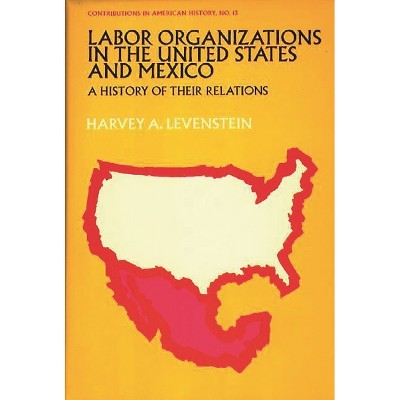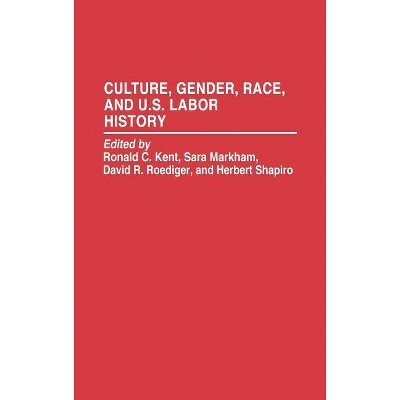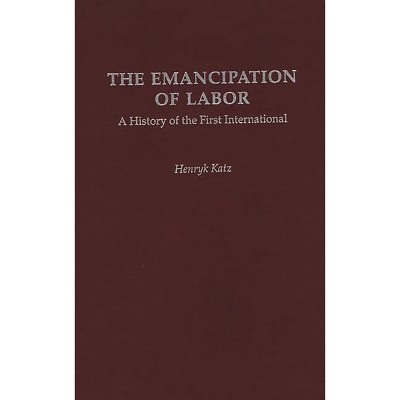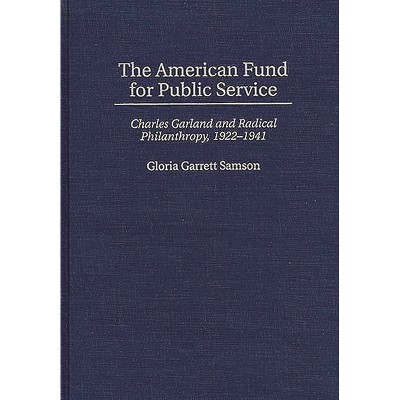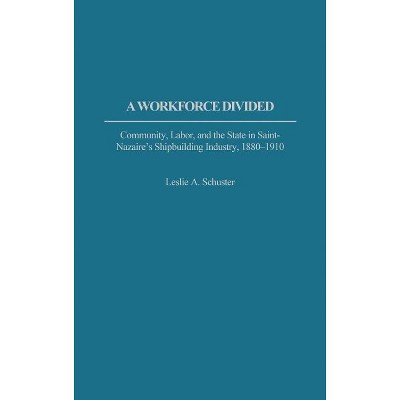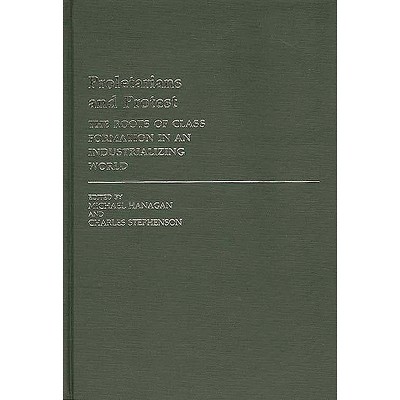Sponsored

The Fictitious Commodity - (Contributions in Labor Studies) by Ton Korver & Anthonie Korver (Hardcover)
In Stock
Sponsored
About this item
Highlights
- Covering the development of the U.S. labor market from 1880-1940, The Fictitious Commodity stresses relations of authority (versus power) in employment.
- About the Author: TON KORVER is a Lecturer at the University of Amsterdam.
- 200 Pages
- Business + Money Management, Labor
- Series Name: Contributions in Labor Studies
Description
About the Book
Covering the development of the U.S. labor market from 1880-1940, The Fictitious Commodity stresses relations of authority (versus power) in employment. Deemphasizing concepts of market and contract, Korver focuses on the differential statuses of employer/employee and demonstrates the inadequacy of conventional economic discourse on labor market analysis. U.S. companies, while undergoing rapid industrialization, tackled both organizational and technological problems. According to Korver, unskilled labor was the common root to these problems. Emphasizing the importance of this usually forgotten category, Korver's history of the U.S. labor market is seen through America's unskilled labor--its vicissitudes and its varying options of citizenship.
In 19th-century America unskilled labor was both expensive and in short supply. According to Korver, new immigration coupled unskilled labor with the novel option of citizenship. Removing its segregated status, new immigration became an integral part of the emerging world of mass production. Korver demonstrates how the ground was prepared technologically by connecting mechanization and standardization. Bureaucratization of employment relationships, development of industrial unionism, and social security serve to illustrate the organizational integration of the new immigrant. Advanced students and researchers in the field of labor economics, labor history, and the sociology of labor markets will appreciate Korver's unique approach to the history of the American labor market.
Book Synopsis
Covering the development of the U.S. labor market from 1880-1940, The Fictitious Commodity stresses relations of authority (versus power) in employment. Deemphasizing concepts of market and contract, Korver focuses on the differential statuses of employer/employee and demonstrates the inadequacy of conventional economic discourse on labor market analysis. U.S. companies, while undergoing rapid industrialization, tackled both organizational and technological problems. According to Korver, unskilled labor was the common root to these problems. Emphasizing the importance of this usually forgotten category, Korver's history of the U.S. labor market is seen through America's unskilled labor--its vicissitudes and its varying options of citizenship.
In 19th-century America unskilled labor was both expensive and in short supply. According to Korver, new immigration coupled unskilled labor with the novel option of citizenship. Removing its segregated status, new immigration became an integral part of the emerging world of mass production. Korver demonstrates how the ground was prepared technologically by connecting mechanization and standardization. Bureaucratization of employment relationships, development of industrial unionism, and social security serve to illustrate the organizational integration of the new immigrant. Advanced students and researchers in the field of labor economics, labor history, and the sociology of labor markets will appreciate Korver's unique approach to the history of the American labor market.Review Quotes
?Labor markets and employment contracts can be studied from diverse academic perspectives. Although this study is primarily economic in orientation, it also uses a historical approach to analyze employment relationships in the US. Kover focuses on the period between the late 19th century and the New Deal era and describes the way in which labor markets were constructed by the interplay of employers, employees, and the state. Labor, the author contends, cannot properly be understood either as a 'commodity' or as a form of property. To the extent that American workers possessed discretionary mobility, or a meaningful opportunity to 'exit' employment, they were able to evade the authority inherent in a wage-dependent relationship. The legislative agenda of the New Deal, however, 'recognized labor for what it was: neither a collective commodity nor a regular, private one.' Accordingly, the state conferred on employees protections against unemployment while maintaining the fiction of private contracts and viable labor markets. By emphasizing the unique nature of employment and its historical context, the author underscores the importance of employer strategies in creating and manipulating the availability of work. Suitable for advanced students and faculty.?-Choice
"Labor markets and employment contracts can be studied from diverse academic perspectives. Although this study is primarily economic in orientation, it also uses a historical approach to analyze employment relationships in the US. Kover focuses on the period between the late 19th century and the New Deal era and describes the way in which labor markets were constructed by the interplay of employers, employees, and the state. Labor, the author contends, cannot properly be understood either as a 'commodity' or as a form of property. To the extent that American workers possessed discretionary mobility, or a meaningful opportunity to 'exit' employment, they were able to evade the authority inherent in a wage-dependent relationship. The legislative agenda of the New Deal, however, 'recognized labor for what it was: neither a collective commodity nor a regular, private one.' Accordingly, the state conferred on employees protections against unemployment while maintaining the fiction of private contracts and viable labor markets. By emphasizing the unique nature of employment and its historical context, the author underscores the importance of employer strategies in creating and manipulating the availability of work. Suitable for advanced students and faculty."-Choice
About the Author
TON KORVER is a Lecturer at the University of Amsterdam. He has published widely in Dutch professional journals, and he is currently working on The Concept of Equality, a study of equal opportunity and affirmative action in the Netherlands and the United States.





